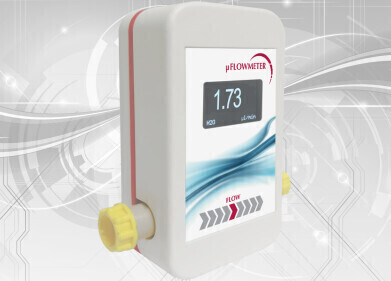LC-MS
How Can Chromatography Help to Improve Adherence for Prescribed Drugs?
Sep 15 2017
When you go to the doctor — after getting passed the receptionist — and you describe your symptoms. If necessary, the doctor will prescribe you some medication that hopefully will help you to get better. But amazingly, it is estimated that for some illnesses or diseases, almost 50% of people will not take the medication as prescribed by the doctor.
A World Health Organization (WHO) report suggests that ‘adherence among patients suffering chronic diseases averages only 50%’. The impact of poor adherence to taking prescribed medications is likely to grow as the problem of chronic diseases gets bigger — one effect of us all living longer. A recent study by doctors in the UK and Czech Republic has examined the problem with respect to patients taking hypertension medication. And the results are promising.
Adherence — why is it a problem?
Adherence is basically a measure of how a patient follows doctor’s orders — or not. The WHO have adopted the following definition:
the extent to which a person’s behaviour – taking medication, following a diet, and/or executing lifestyle changes, corresponds with agreed recommendations from a health care provider.
There are many reasons why people don’t follow the doctor’s advice. The key determinants in medical adherence include:
- Patients feeling empowered and included in treatment decisions, and
- The way patients balance their needs for a treatment versus their concerns against possible side effects.
But whatever the reasons for poor adherence — the consequences of poor adherence will be poor health outcomes and increased health-care costs.
Measuring adherence with LC
When dealing with hypertension or raised blood pressure, research has shown that good adherence improves blood pressure control and reduces the impact of hypertension on the patient. This was behind the research carried out by the team of doctors from universities in Manchester and Leicester, University College London and the Czech Republic.
They were interested in potential therapeutic applications to screen for antihypertensive medications in bodily fluids — and liquid chromatography mass spectrometry (LC-MS) analysis of urine and serum was the chosen method. Improvements in LC-MS are the topic of this article, Ion Suppression from HPLC Columns.
The doctor is watching you
The team measured non-adherence to antihypertension medications by analysing urine (UK) and serum (Czech Republic). The results were subsequently discussed with the patients and blood pressure was monitored in follow-on clinics.
238 UK patients were tested, 73 were non-adherent to treatment. The urinary adherence ratio — a measure of detected to prescribed medications — increased from 0.33 to 1 over the treatment course. The increase in adherence was associated with an improved blood pressure control for the group of patients.
The team suggest that their data shows that non-adherence antihypertensive patients respond to an LC-MS based analysis and that this could be considered as a suitable therapeutic approach for non-adherence patients.
Events
May 11 2025 Vienna, Austria
May 18 2025 Tempe. AZ, USA
May 21 2025 Birmingham, UK
Jun 01 2025 Baltimore, MD, USA
Jun 15 2025 Bruges, Belgium














